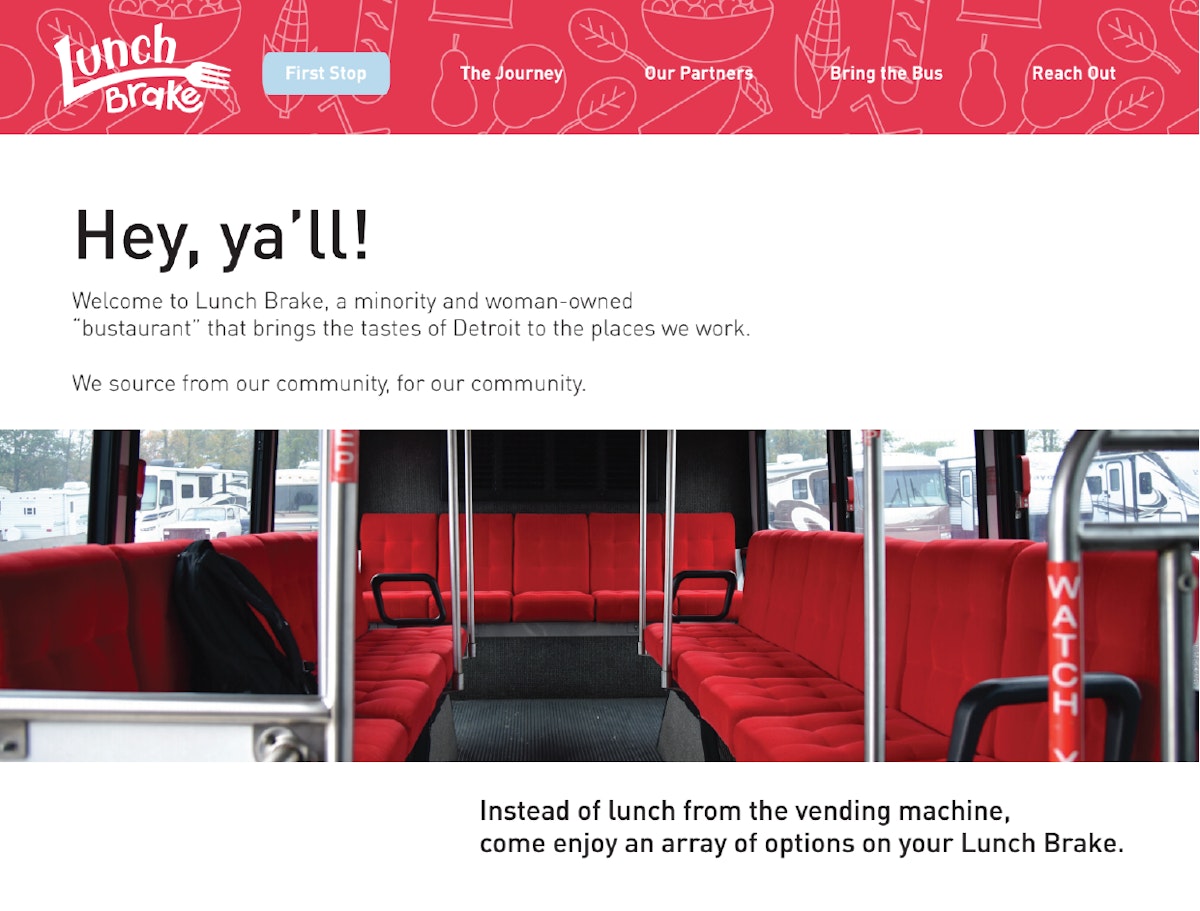Lunch Brake with Detroit Neighborhood Entrepreneurs Project
Stamps School of Art & Design undergraduates Juli Polise (BFA '18) and Paige Wilson (BFA '19) were cautiously optimistic as they put the final touches on part of their semester-long project.
"Today we're going to finish the logo," Polise said. "At least the form of it," Wilson added, less certainly. "Maybe not the colors."
As members of an eight-person team in the Fall 2017 engagement course, Design Studio: Detroit Neighborhood Entrepreneurs Project (DNEP, ARTDES 400.2), students were tasked with creating branding for a real client, and they wanted to get the logo just right. The full group had started the process back in September. By this point, Polise guessed they had produced at least 200 versions of the logo in the month of December alone.
In lively block letters, three versions of the words "Lunch Brake" were sketched on the paper in front of Polise. The logo was for a new mobile business that will serve food to workers in the "Downriver" area of Metro Detroit from a converted transit bus. The students said their biggest challenge was making their work match the proprietor's big personality without slipping into something too "diner-y."
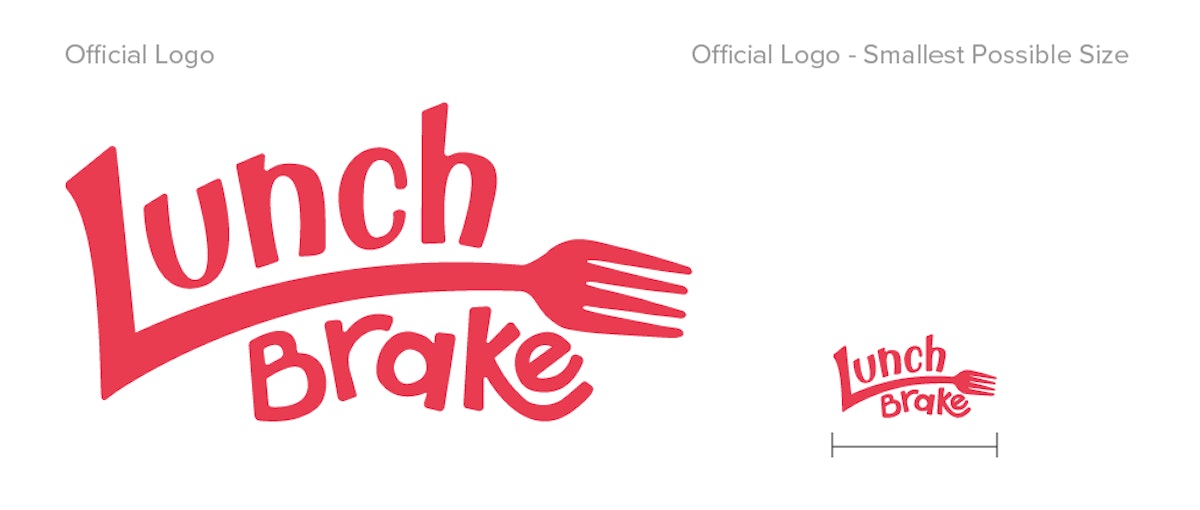
"We want to give her the best possible logo, because we've all really come to know her," Polise said. "We want to give her something that accurately represents who she is, who her business is, and her really good spirit."
That commitment to delivering good work for a real person, not just a passing grade, is a key part of the course, and a recurring theme for those taking it. The interdisciplinary DNEP course pairs groups of students — from Stamps, U-M Law School, and the Ross School of Business —with neighborhood-based entrepreneurs in Detroit to help them identify and address challenges to growing their business.
At a nearby table, Maddy Helland (Stamps BFA '18) and international student Carla Borkmann were working through signage placement on a scale model of the bus made from cardboard. When they first signed on to tackle the spatial design of the bus, the two thought they’d be creating interior design concepts, but as they got into the process they realized there were a lot of basics to focus on first, like storing and serving food in a tight space that is also inviting and intuitive for customers.
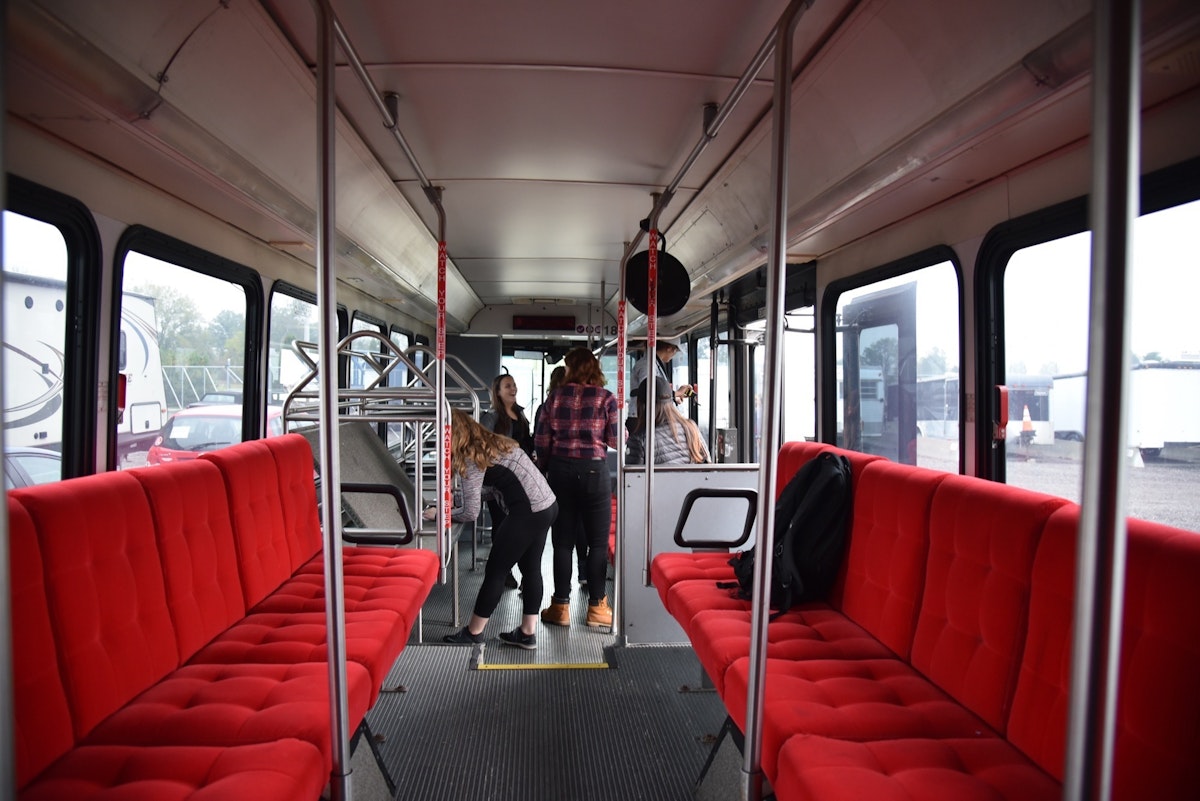
"It's been very helpful learning to work with a client on a larger, more extensive project,” Helland said.
It had been a project 10 years in the making for owner Achsha Jones. When she first got the idea for her business, Jones’ life was in transition. As a single mom going through a divorce, she had to make the tough choice to leave college during her junior year for a fulltime job. "I figured out quickly I could work and go to school, or I could work and take care of my daughter, but I couldn't work and go to school, and take care of her," she says.
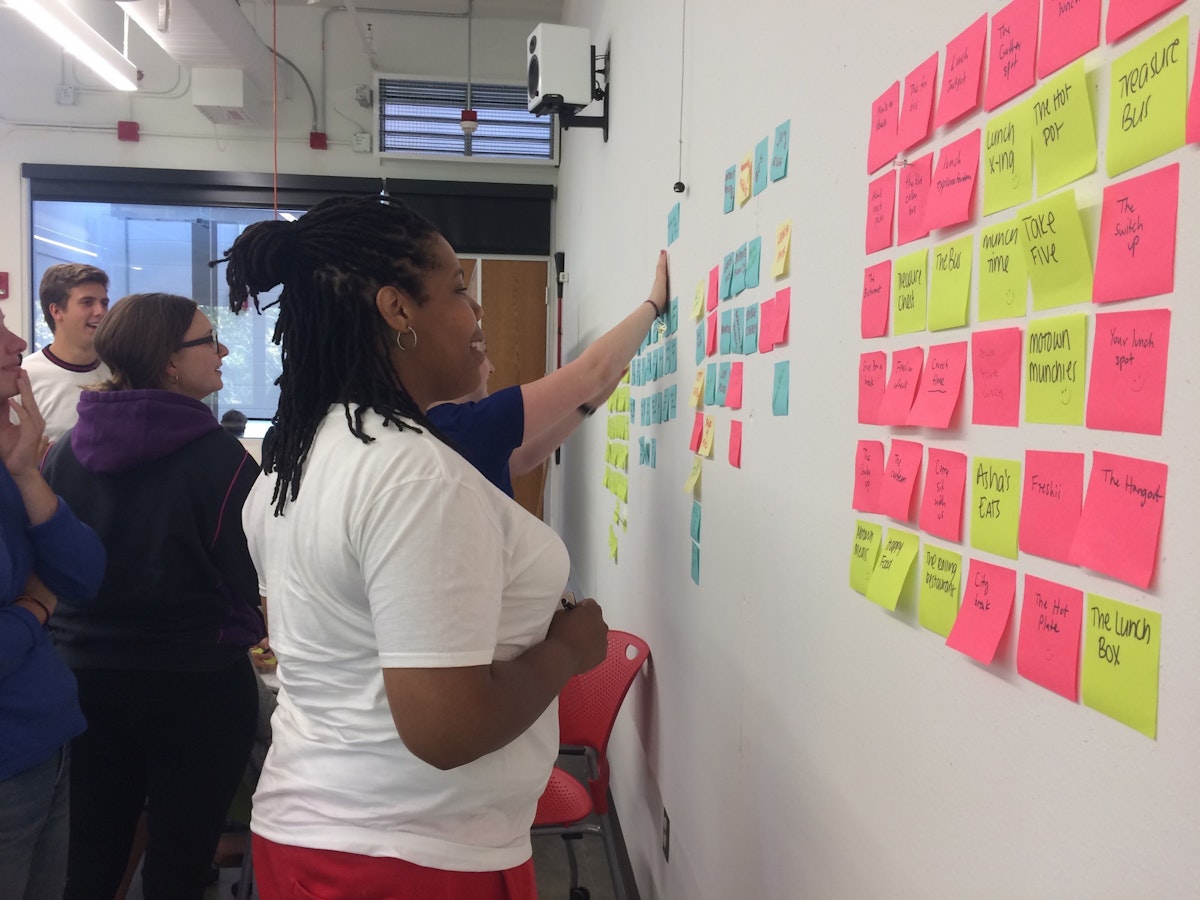
She took a position in business-to-business sales, calling on large manufacturing plants and office buildings in suburban industrial parks. Jones also loved to cook and often catered on the side for extra money.
As she made her sales rounds, she started thinking about the hundreds of workers there, all on short lunch breaks with limited food options. It gave her an idea: "I'm like, there's got to be a way we can feed these people, but do it quickly," she recalls. "This was before the dawn of food trucks. I knew what a food truck was, but it wasn't really a thing. I said, 'How can we do it better and differently? We can do it on a bus!'"
Since then, Jones' "bustaurant" idea — and life — have taken a few turns. She purchased a former transit bus to convert into a mobile food service that will bring hot and cold lunch options from her favorite Detroit vendors to workers Downriver. She also remarried and had a second child. Jones and her husband stopped catering a couple of years ago to focus on getting the bus going. It's taken time to get to this point, but she knows the market is still there.
"There are literally 300 businesses where I have the names, business cards, email addresses of the gatekeepers at the plant," she says. "The guys are like, 'When is the bus coming?'"
Through her connections in the Detroit entrepreneurial community and applications for local grants, like the New Economy Initiative NEIdeas program, Jones was put in touch with the DNEP.
Working as a larger group and in smaller teams of two, Stamps students kept regular contact with Jones and updated each other while creating, collaborating, and reviewing their work along the way. “Working with eight people as a design team is something we don't do that often, so learning the process of working with others and how to go through that and delegate different tasks and how it all works together was an experience,” said Sara Ciaramella (BFA ‘18).

After fourteen weeks of meetings, calls, planning, long email threads, group work, and individual assignments, students presented their final recommendations to their clients as the class came to a close in mid-December.
Jones sat front and center, nodding, laughing, and audibly approving, as her team presented their vision for her business's brand identity, website, packaging, and the interior layout of the bus itself.
When it was over, Stamps professor Hannah Smotrich let Jones know how much the students appreciated her level of involvement and commitment to the project. "While I hope they've given you something of value, we want to thank you for all you've given," Smotrich said. "You've been incredibly generous with your time and your energy, and it makes what we're doing meaningful."
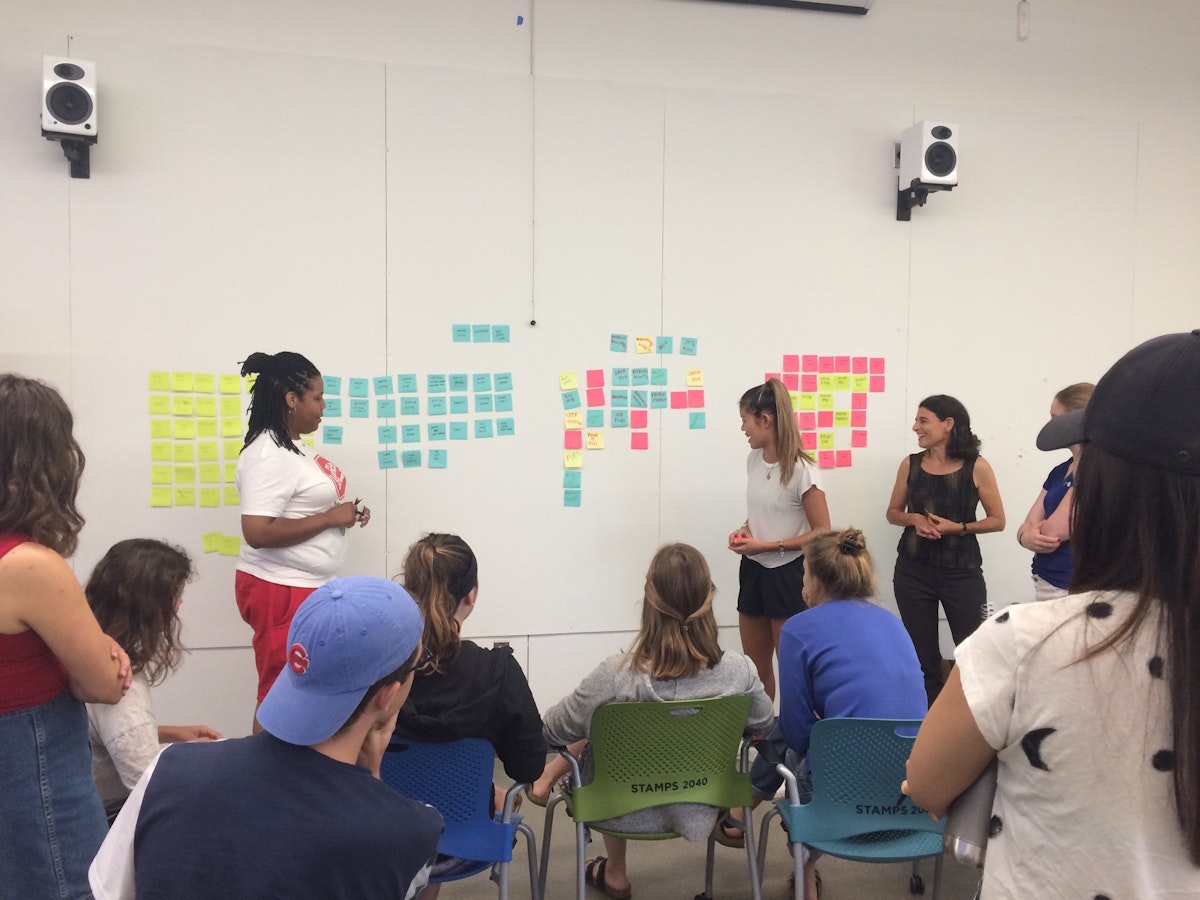
Jones deferred: "Please don't thank me for winning the lottery, because that's what's happening here.” Following the presentation, Jones said the students had "breathed new life into her business.”." "Before it felt like a lot of insurmountable work," she said.
Talking after the presentation, Jones said she had been willing to take any help available to get her dream off the ground, but she was "blown away" by the level of detail and thoughtfulness students brought to the project. "They're able to pull ideas out of my head I didn't know were there," she said.
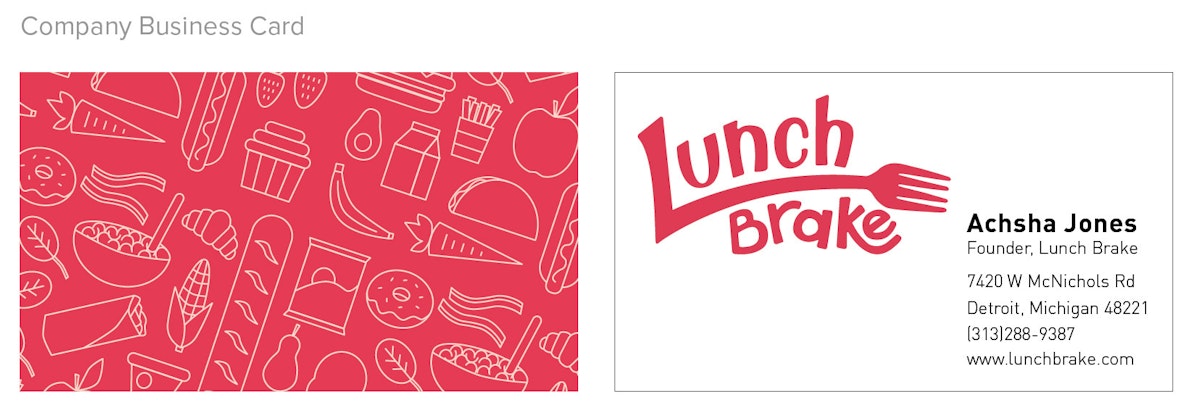
"It's so affirming to work with a group of students who are this immensely talented and passionate about something they really just learned about," Jones said. "All of these people are doing this for something I thought of years ago out of desperation. It's something I continue to do, because I see it as a viable way to change the way people eat lunch and change the world.
"We've had a lot of struggles behind this business. Personal sacrifices. Having someone else say, 'How can we help make this happen?' It is so affirming."
That affirmation went both ways, Polise said. “It was a great confidence boost to meet with Achsha every month,” she said. “She was always like, ‘You guys are amazing!’”
Helland, echoed Polise’s sentiment: “Achsha taught us how to get people invested in an idea of yours that you're passionate about.”
